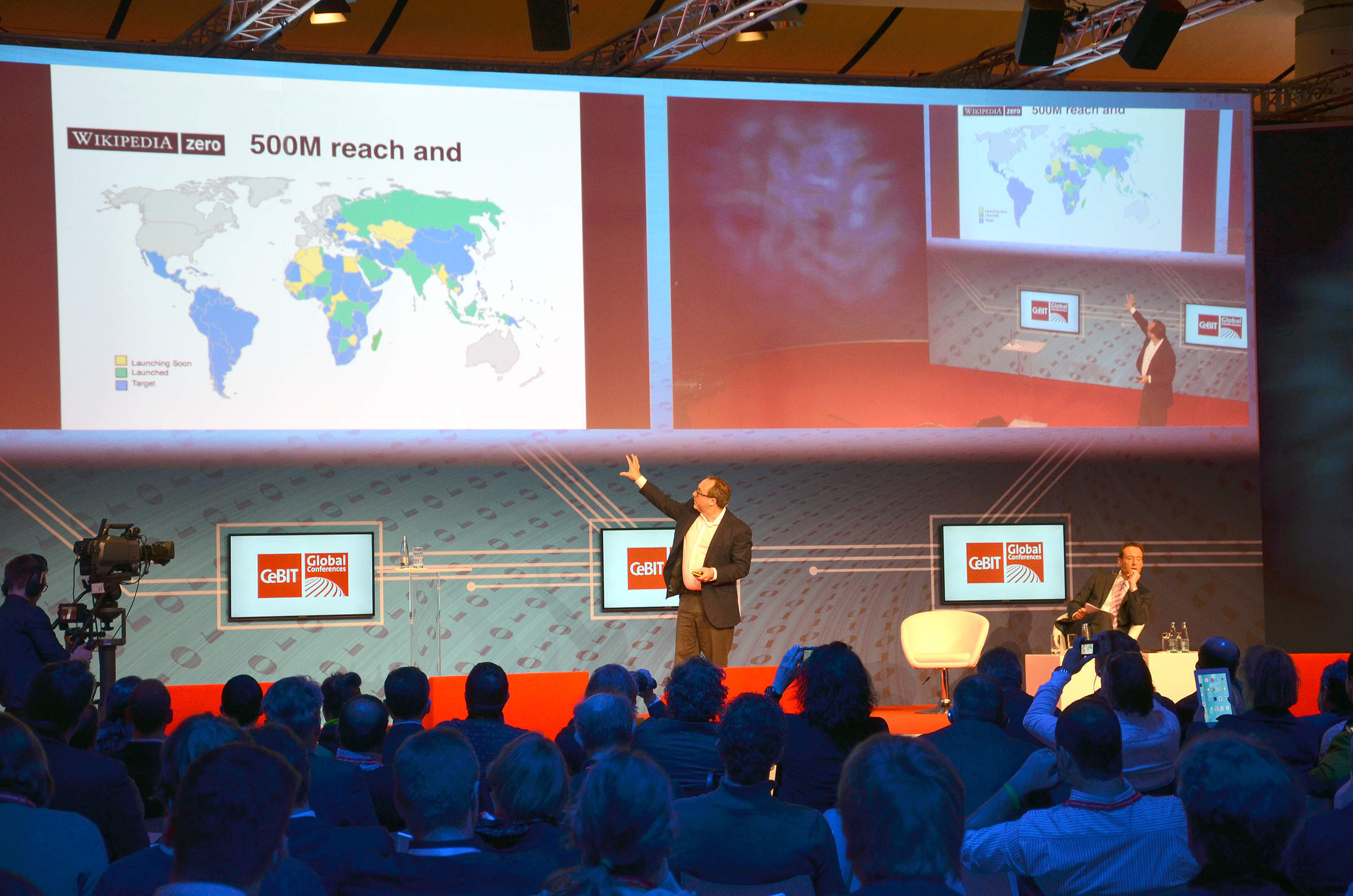
The current advertising-led business model of social media companies and news publishers needs to change if we are to curb the spread of fake news, according to Wikipedia founder Jimmy Wales.
According to Wales advertising is “incredibly destructive” for journalism, prioritising the wrong incentives and encouraging click-bait style news articles.
Wales was speaking at the Fake News Versus Real Politics debate at the World Economic Forum (WEF) in Davos today alongside managing editor of the New York Times Joseph Khan, deputy editor of RT Anna Belkina, and chairman of Pakistan’s People’s Party Bilawal Bhutto Zardari.
The phenomenon of so-called fake news has dominated the media over the past year, with US president Donald Trump using Twitter to express his frustrations with a media he sees as against him.
Wales said:
We need to rework the business model. Advertising as a piece of the business model is fine but in this environment of a highly automated advertising ecosystem, journalism can’t compete if it’s just about raw clicks.
How well do you really know your competitors?
Access the most comprehensive Company Profiles on the market, powered by GlobalData. Save hours of research. Gain competitive edge.
 Company Profile – free sample
Company Profile – free sampleThank you!
Your download email will arrive shortly
Not ready to buy yet? Download a free sample
We are confident about the unique quality of our Company Profiles. However, we want you to make the most beneficial decision for your business, so we offer a free sample that you can download by submitting the below form
By GlobalData
Last year Wales launched WikiTribune, a journalism platform styled as a wiki community. It is designed to promote evidence-based journalism in an active online community.
Yesterday it was announced the UK will set up a new unit to counter fake news and to try to deter disinformation campaigns by other states.
The UK’s prime minister Theresa May has previously accused Russia of meddling in elections and its state media of planting fake stories and photo-shopped images in an attempt to undermine western democracy.
Russia is also suspected of intervening in the 2016 US presidential election and a major inquiry is underway in Washington.
French president Emmanuel Macron announced earlier this month he would overhaul domestic media legislation to fight the spread of fake news on social media, which he said was a threat to liberal democracies.
According to Wales it is important to distinguish between fake news generated by young individuals and propaganda put out by larger corporations. Zardari called for better education in schools about fake news and bias; discussing what it looks like and how to research properly.
Zardari also warned that fake news is being used by politicians to “demonise” the press — with Trump known for his outbursts against the US and international media over his 12 months in office.
Read more: Forget the Fake News Awards, here are the Verdict Fake Tweet Awards
Trump last week held what he called the Fake News awards — calling out various media outlets for publishing stories which he said were factually incorrect or spun in a way to make his administration look bad.
According to Khan, Trump uses the term fake news as “an all purpose smear” that has led to the term being weaponised.
Meanwhile, Belinka described fake news as “toxic”. He said:
It muddles the debate and public discourse about actuality and information. We see it weaponised by public figures and media organisations as a way of silencing dissenting voices and to avoid answering any kind of criticism… It is harmful to the actual problem.
Khan described society as “hyper-partisan”, saying:
We are in an environment where people lead identity based political lives, affiliating with certain news and information based on its political value… hyper-partisanship produces fake news…(and) I think that the proliferation of fake news is one of the most important symptoms of a decline in shared values and sense of truth.
According to Khan, people will often seek out stories that support their own political beliefs and ideologies, even if these do not come from the most secure sources.
However, Wales said that often for those who are not avid news readers, it can be hard to discern unreliable sources. He added that people’s trust in news from social media platforms is on the decline, and the need to turn to another, better source is being recognised.
He said that while people “do like to buy newspapers that strengthen their world views…people really do have a strong desire for clear facts”.







